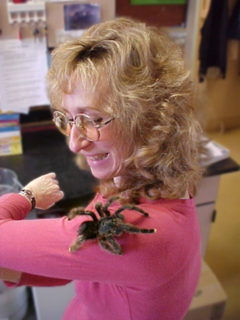A Quote by Sy Montgomery
The fact that three-fifths of an octopus' neurons are not in their brain, but in their arms, suggests that each arm has a mind of its own.
Related Quotes
There are 100 billion neurons in the adult human brain, and each neuron makes something like 1,000 to 10,000 contacts with other neurons in the brain. Based on this, people have calculated that the number of permutations and combinations of brain activity exceeds the number of elementary particles in the universe.
Unlike the heart or kidney, which have a small, defined set of cell types, we still do not have a taxonomy of neurons, and neuroscientists still argue whether specific types of neurons are unique to humans. But there is no disputing that neurons are only about 10 percent of the cells in the human brain.
Most of the different types of cells in our body die and are replaced every few weeks or months. However, neurons, the primary cell of the nervous system, do not multiply (for the most part) after we are born. That means that the majority of the neurons in your brain today are as old as you are. This longevity of the neurons partially accounts for why we feel pretty much the same on the inside at the age of 10 as we do at age 30 or 77.
The brain immediately confronts us with its great complexity. The human brain weighs only three to four pounds but contains about 100 billion neurons. Although that extraordinary number is of the same order of magnitude as the number of stars in the Milky Way, it cannot account for the complexity of the brain. The liver probably contains 100 million cells, but 1,000 livers do not add up to a rich inner life.
Modern brain-scan technology has revealed that each person shapes a completely unique brain. Other studies have documented the amazing regenerative ability of the brain, which can be reshaped by the power of your mind to bring you the world you desire. Knowing that, the obvious question arose: Why not use your mind to create the brain you want, using conscious choice?




































